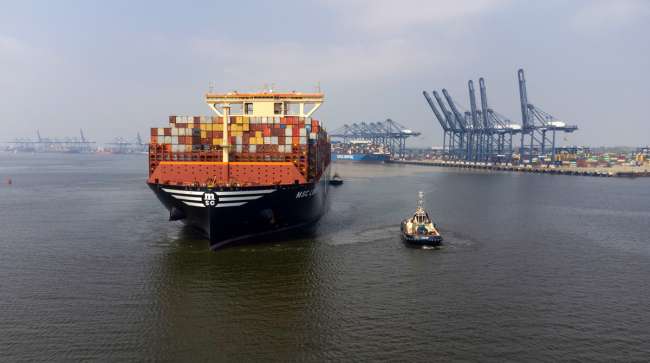UK Suspends Efforts to Remove US Steel Tariffs
In a move stirring quite the industry buzz, the UK has quietly hit the pause button on negotiations with the United States to roll back the 25% tariffs imposed on British steel imports. The decision comes just before a high-profile visit from President Donald Trump, which many had hoped would signal a breakthrough on tariffs. Instead, talks have stalled, leaving UK steelmakers still facing a tariff wall that weighs heavily on their competitiveness in the global market.
Starmer’s Strategic Acceptance of the 25% Tariff
UK Prime Minister Keir Starmer has agreed to accept the current 25% steel tariff on British steel, even though the industry has pushed hard for relief. This rate, while lower than the 50% tariffs applied to other countries, is nonetheless a significant burden for UK steel companies. The rationale is part of a strategic choice to maintain stable trade relations ahead of the US president’s visit, with the indication that further negotiations will be ongoing but gradual.
Key Terms of the Trade Dispute
- Tariff Level: 25% on UK steel, down from 50% on other countries’ steel exports.
- US Requirement: Steel must be “melted and poured” in the UK to qualify for tariff exemptions.
- Industry Challenge: Tata Steel UK, a major steel producer, can no longer meet the “melted and poured” rule after shutting down its last blast furnace.
This technical condition set by the US complicates exemption prospects and underpins much of the current impasse. UK businesses had initially been optimistic after a May trade deal which suggested tariffs might be lifted, but so far, this hasn’t materialized for steel.
Trump’s Visit and Its Complex Timing
President Trump’s arrival in the UK adds a complex political and economic layer. While he indicated openness to refining trade arrangements for the UK, no concrete tariff concessions were announced during his visit. The timing is delicate, especially considering recent diplomatic tensions and scandals that have overshadowed other negotiations.
Economic Impacts on the Logistics and Steel Sectors
Steel tariffs impact not only steel producers but also ripple across the supply chains that depend on steel as a core raw material. Logistics companies are caught in a web of increased costs and uncertainties, affecting freight forwarding and cargo shipments of steel products and related goods.
| Ala | Impact of 25% Steel Tariff | Logistiikan haasteet |
|---|---|---|
| Steel Industry | Increased costs reduce competitiveness and profitability. | Complex cargo handling and routing to optimize tariff costs. |
| Valmistus | Higher material costs may lead to production delays. | Disrupted shipment schedules and increased freight insurance needs. |
| Logistiikkapalvelujen tarjoajat | Need to adapt to fluctuating trade policies. | Critical in managing compliance, tariff classification, and customs clearance. |
Looking Ahead: Ongoing Trade Negotiations and Broader Implications
UK and US officials continue to exchange talks aimed at eventually removing these tariffs, but the process looks poised to be slow and fraught. Meanwhile, other trade areas such as digital assets and financial sector cooperation are making progress, signifying a complex, multifaceted relationship.
The Ripple Effect on Global Transport and Supply Chains
Steel tariffs disrupt more than direct trade; they can cause delays and increased costs in shipping, warehousing, and distribution of a broad range of goods. For logistics companies managing international shipments – whether large cargo, pallets, or bulky freight – unpredictability in tariffs poses operational hurdles that translate into rising expenses and planning headaches.
Why Transparency and Strategic Planning Matter in Freight Transport
From office relocations to large-scale freight forwarding, firms must navigate tariff landscapes smartly. Platforms like GetTransport.com offer an edge by combining affordability with a global network of transport solutions. Whether you need to move bulky items like furniture and vehicles or handle container freight internationally, such services streamline delivery management against shifting trade realities.
The Value of Honest Feedback and Personal Experience
While industry news provides broad strokes of tariff changes and geopolitical shifts, nothing beats firsthand insight. The best way to understand how tariffs and trade policies affect cargo and logistics workflows is to engage directly with transport services. GetTransport.com empowers users to explore the market, compare competitive offers, and secure shipments under transparent terms – avoiding unexpected costs or delays.
With its extensive choice of carriers and global reach, this platform helps businesses, movers, and individuals alike get the best deals on freight, from parcel to pallet transport. Book your cargo transportation with GetTransport.com tänään!
Summing It Up: Navigating Trade Complexities in Logistics
The UK’s decision to delay lifting US steel tariffs underscores the complexity of international trade negotiations and their profound impact on industries and supply chains. Steel tariffs raise costs and complicate logistics, demanding agility from cargo forwarders, distributors, and manufacturers alike. While political and diplomatic factors shape the trade environment, reliable transport networks remain vital for the smooth movement of goods across borders.
Platforms such as GetTransport.com offer crucial support by providing cost-effective, transparent, and versatile logistic services. With options spanning from household moves and vehicle transport to large container shipments, they help businesses and individuals navigate the freight ecosystem confidently and efficiently. In a world where tariff rules can change overnight, having flexible and trustworthy logistics partners is not just a convenience but a necessity.

 UK Holds Off Removing 25% US Steel Tariffs Despite Trade Talks Ahead of Trump’s Visit">
UK Holds Off Removing 25% US Steel Tariffs Despite Trade Talks Ahead of Trump’s Visit">